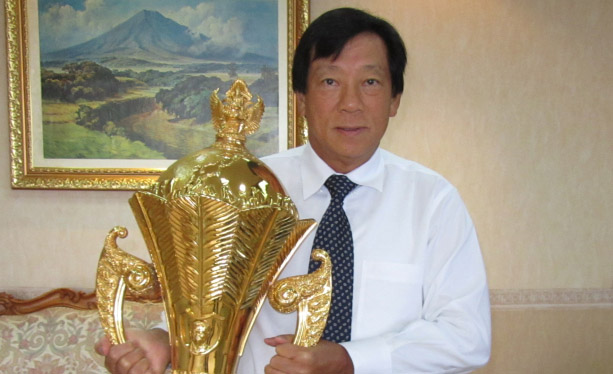
Justian Suhandinata, Asia’s candidate for the presidency of the Badminton World Federation (BWF), spoke to Badzine last week by email, responding to questions regarding his plans for a term as head of the sport’s governing body.
Interview by Raphael Sachetat. Photo: justiansuhandinata.com (rights reserved)
Indonesian businessman and badminton organizer Dr. Justian Suhandinata is one of two candidates running for the presidency of the BWF. A former vice president of both the Indonesian Badminton Association and the International Badminton Federation (which was later renamed BWF), he has also been President of Indonesia’s Tangkas Badminton Club for over 25 years.
Badzine: When was it that you decided to be a candidate for the BWF presidency?
Justian Suhandinata: In Bangkok after Dr. Kang announced in council that he will not stand for re-election as President.
Badzine: What do you think, from your life experience, can make you a good leader for the sport?
Suhandinata: I have many years of successful leadership experience, both in business and in sport. I have a strong track record in both managing and motivating people and I know how to get the best out of them. In my business career I manage a corporation and I have over a thousand employees. I have often shown that I can guide a team to finding innovative ways of solving seemingly insurmountable problems.
There are very few people in the world of international badminton with whom I do not have a good professional and personal relationship.
I have had a lifelong passion for the sport and I know every aspect of it intimately. I understand the challenges it faces and I have spent a long time developing positive and productive ways of meeting them. I have visited all five continents and have discussed with them the problems they face. I understand that, not only is each continent different, but also that varying regions within the continents face different difficulties. I believe I can help them to overcome them.
Badzine: Your programme shows your will to give a lot of financial support to Continental Federations and Member Associations. How will BWF get the money to do this?
Suhandinata: The International Olympic Committee Grant is a key component. In addition, the BWF has recently been successful in securing income from sponsorship and the commercial success of its events. I would envisage building on this and I would anticipate that the initiatives I intend to introduce to make the sport a truly global one will attract more commercial and private sponsorship.
Badzine: How do you intend to work with Continental Federations?
Suhandinata: I think it is essential that the BWF work closely with the Continental Federations and consult with them. It is in the interest of the BWF to ensure that the Continental Federations are well funded, well governed and financially able to carry out local initiatives that will benefit the sport as a whole.
Badzine: Badminton is secure for the 2020 Olympic Games. What can be done to ensure it stays in the program for the next years?
Suhandinata: We need to ensure that badminton is perceived as a truly global sport. This means that we need to make sure that top players emerge from all continents; that the participation base is strong in all continents; that media coverage is as wide as possible. There are a range of initiatives to achieve this but I can summarize by saying that we need many more young people in well-organised and well-coached programmes and with better opportunities to train with better players.
Badzine: Putting the players and coaches in the centre of the picture: in your mind, what are the tools that will achieve this?
Suhandinata: The tools required differ for different areas. In some places, the greatest need is for better facilities and more equipment. In others, it is better quality coaching and a better understanding of coach development. In still others, it is a change of attitude and lifestyle. Badminton is one of the most demanding of all sports and the degree of commitment required to reach the top level is very high. Not all good athletes or coaches understand that this means commitment in every aspect of life, not just in the training hall.
Badzine: In your opinion, should independent players be allowed to enter tournaments directly and participate in the World Championships or Olympics if they are better ranked than official national team members in their Member Association?
Suhandinata: Not at the moment. Member Associations are responsible for the performance programmes in their own countries. They invest heavily in their young athletes, providing coaching and training and they fund them to take part in international competitions. They know their players. I think that some players have used the world ranking system to gain points for qualification without actually demonstrating that they can compete and win at the top level. They do this by carefully selecting the tournaments they play. The time for change may come but I do not think it is here yet.
Badzine: What would be the ideal tool for talent scouting in emerging badminton countries?
Suhandinata: Independent scout coaches who have the opportunity to watch players train and compete and, having identified them, have the opportunity to follow their progress and provide input to their development.
Badzine: In this time of crisis, what is the best way to get more sponsorship and more money into the sport?
Suhandinata: Networking through business connections; demonstrating the great value for money that our events offer to the public, to the media and to commercial sponsors.
We must ensure that our events are presented to a high standard; that matches are exciting and entertaining and that players have personalities. We need to work to create more stars in the sport and we need to help players understand what that means and how they will benefit from it.
BWF Presidential Elections will be held in Kuala Lumpur in conjunction with the Annual General Meeting on May 18th, 2013.
To read more about Dr. Suhandinata’s platform, visit his website.
To view Badzine’s interview with presidential candidate Poul-Erik Hoyer, click here
![Badzine interview with Justian Suhandinata Justian Suhandinata, Asia’s candidate for the presidency of the Badminton World Federation (BWF), spoke to Badzine last week by email, responding to questions regarding his plans for a term as […]](http://www.badzine.net/wp-content/uploads/Newsflash-thumbnail.png)

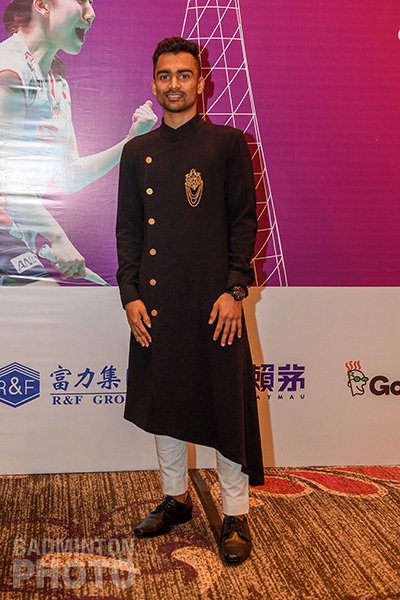
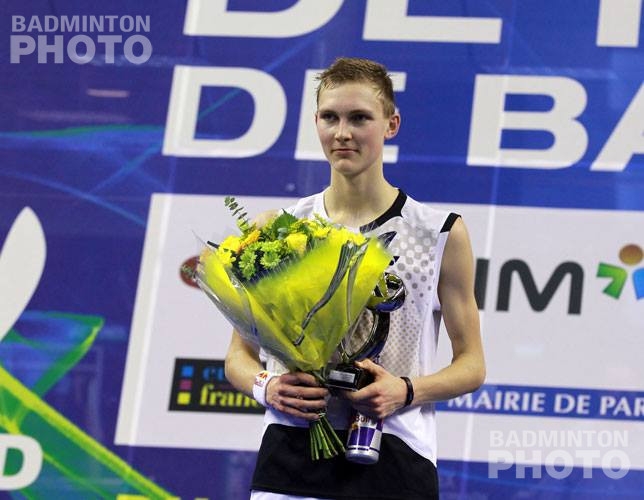

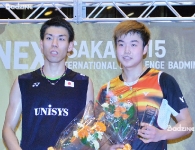
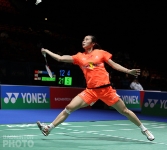
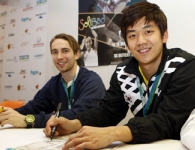
Leave a Reply